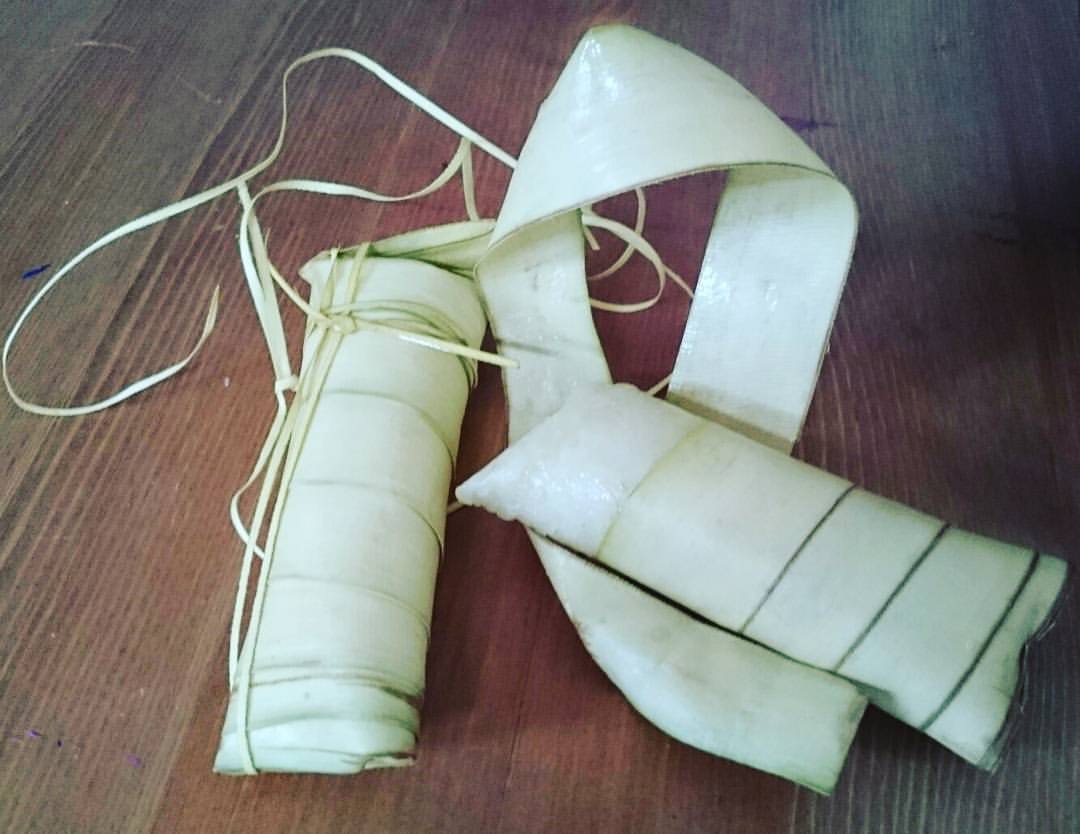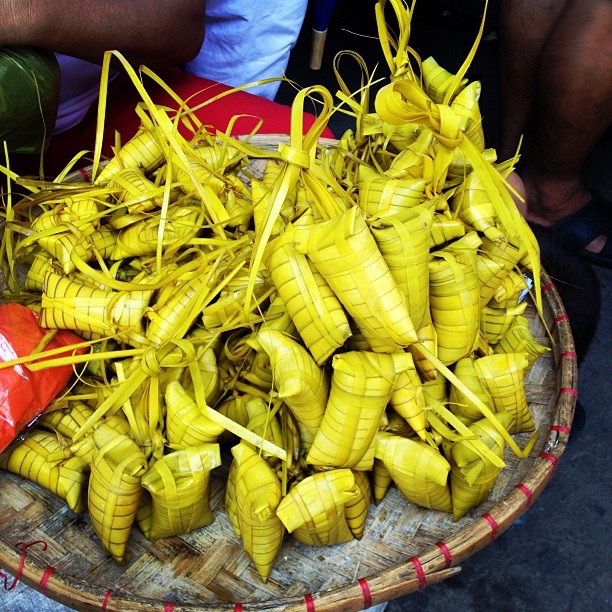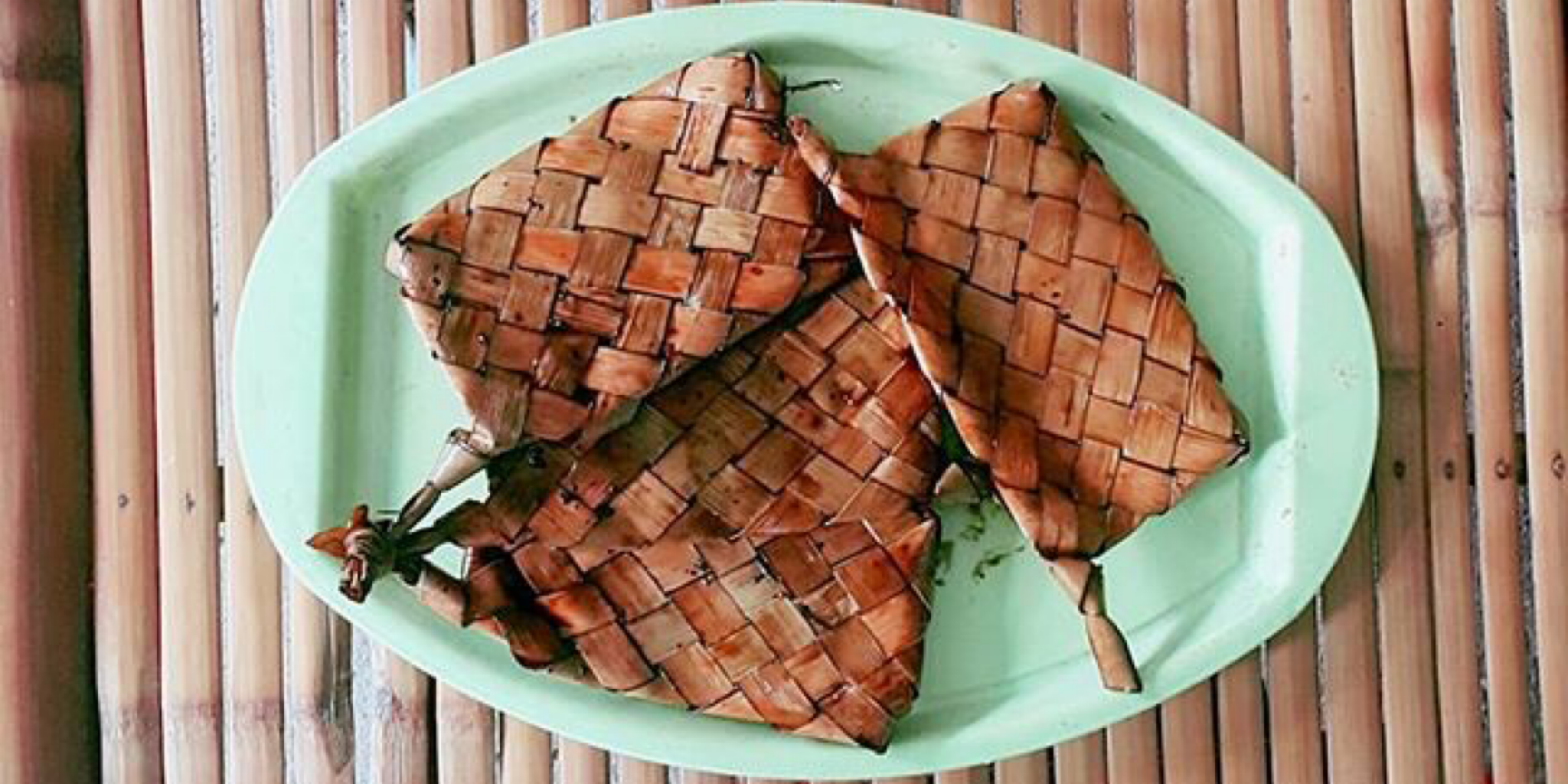Suman [soo-mahn] is a slender-shaped Filipino rice cake steamed inside banana or palm leaves.
The main ingredient of most kinds of suman is the glutinous rice malagkit, which is cooked with gata (coconut milk).

Among the many varieties are suman sa ibos and suman sa lihiya. There is a balinghoy variant that makes use of cassava instead of rice.

HOW TO EAT SUMAN
Peel off the leaves! Dip in brown sugar or a mixture of grated coconut and brown sugar. Enjoy!
Tip: Because rice is susceptible to spoilage, eat suman on the day it is cooked or within a day or two at most. Store in a cool place. If you place the leftovers in the refrigerator, be prepared to gnaw on the hardened rice.

Food items from other countries that are similar to the suman of the Philippines:
Zong-zi (糭子) of China: made of glutinous rice stuffed with different fillings and wrapped in bamboo or reed leaves; cooked by steaming or boiling
Chimaki (ちまき) of Japan: glutinous rice cake wrapped in a bamboo leaf; eaten during the Kodomo no hi Festival in May
Bánh tro (banh u) of Laos, Thailand, Cambodia and Vietnam: sticky rice wrapped in a banana-leaf pouch
Tamales of Latin America: steam-cooked corn dough (masa) wrapped in corn husks or plantain leaves
KAHULUGAN SA TAGALOG
súman: kakaníng binálot sa dahon ng saging, niyog, o katulad
ipagsúman, isúman, magpasúman, magsúman, sumánin
búdbod, kurúkod
parang suman: masikip ang damit






Do you have suman Tagalog? How much?